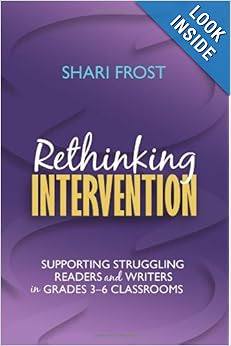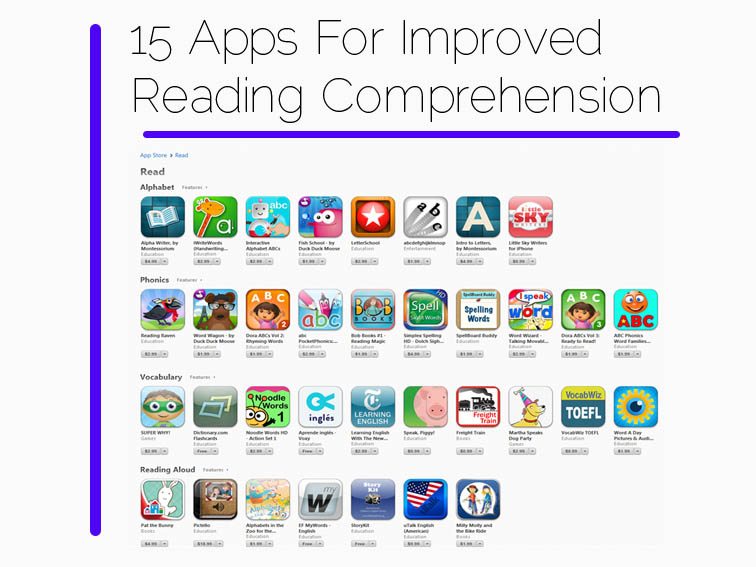Tuesday, February 25, 2014
Student-Friendly CCSS Learning Targets
Here is a Link to student-friendly learning targets. Thanks Sarah Bovee for sharing!
Shared Writing and Authentic Experiences
Another great essay from Choice Literacy. It is an excerpt from Rethinking Intervention- Supporting Struggling Readers and Writers in Grades 3-6 Classrooms by Shari Frost. This essay describes a 4th grade teacher's work with her class using shared writing. They create a letter to the school board about the recent decision to ban Halloween parties. This essay also explains how to do a shared writing and the benefit it has for all students, especially struggling writers and the power of authentic writing experiences.


Using Shared Writing to Build Argument Skills
Shari Frost
 Pr
Pr
Belinda was feeling rather discouraged. She had just finished reading drafts of her students’ argumentative writing. After several minilessons and conferences, most of her fourth graders were still not supporting their position statements, especially the struggling learners. Perhaps the problem was the topics. Only a few of the students had generated their own topics. The rest had relied on the cliché topics that Belinda had provided as examples, such as school uniforms, no homework, and later bedtimes -- nothing that they were strongly passionate about. Feeling resigned, Belinda planned the minilesson for tomorrow’s writing workshop based on what she had noticed in the latest drafts.
|
Mentor Texts that Support Opinion Writing
Choice's Literacy Pinterest Board on mentor texts that support opinion/argumentative writing.
Primary teacher Katie DiCesare uses this book with her students to explore characters with strong opinions. She writes, "The Watson’s neighbor Eugenia is an elderly lady who lives next door and has many opinions, one of which is that pigs should not live in houses." Do students agree that pigs should not live in houses?
Primary teacher Katie DiCesare uses this book with her students to explore characters with strong opinions. She writes, "The Watson’s neighbor Eugenia is an elderly lady who lives next door and has many opinions, one of which is that pigs should not live in houses." Do students agree that pigs should not live in houses?
Opinion/Argumentative Writing
Touchy Topics for Opinion/Argumentative Writing
Heather Rader
Many teachers have asked me for lists of arguable topics that appeal to kids. While I have some personal favorites, I offer this scaffolding to plan so they develop something personally relevant.
 |
Opinion Writing- Making it Meaningful
I came across this post from Choice Literacy about Opinion Writing and Mentor Texts. It presents a good point about giving students an authentic purpose when creating opinion pieces.
 On a recent Saturday I spent the afternoon with some teachers who constantly push my thinking and make me laugh: the perfect combination. After enjoying some ice cream in near zero degree weather, we headed to one of our favorite spots, the Cover to Cover Bookstore. We sort of take over the bookstore when we arrive, meandering into section after section of picture books to discover new treasures.
On a recent Saturday I spent the afternoon with some teachers who constantly push my thinking and make me laugh: the perfect combination. After enjoying some ice cream in near zero degree weather, we headed to one of our favorite spots, the Cover to Cover Bookstore. We sort of take over the bookstore when we arrive, meandering into section after section of picture books to discover new treasures.
There was much talk about opinion writing. "Does anyone have a good picture book for teaching opinion writing?" was asked in one of the aisles. A long discussion ensued. What does opinion writing look like in young writers? When do we use it? What's the goal of an opinion piece? Are there strong mentors available for young writers?
It wasn't long until I sat down to try to whittle my stack of seven picture books to three. I had assured myself I would only purchase three titles, but it wasn't going well. About that time, one of my friends asked, "What do you love about this one?" as she looked at the newest book byJacqueline Woodson, This is a Rope. I looked at the book which had caught my attention because of its bright yellow cover, the idea that a rope might be significant enough to create a story, and the author. I glanced from the book to her and replied, "It's a great story."
You really can't give an answer like that to a teacher, so I knew it wasn't enough. She was still looking at me and waiting. "Why? What do youreally like about it?" she persisted. I had picked it up and loved it, but I was having difficulty being specific enough. I knew she wanted to know more. She wanted me to reach deeper for a better, stronger response. Mostly, she wanted to know if I had seen something that she hadn't when I read it.
Later that evening and still into the next day, her question stayed with me, "What do you really like about it?" The sincere interest made me move beyond my superficial response. I knew I loved Woodson's book as soon as I opened it and read the line, "This is the rope my grandmother skipped under the shade of a sweet-smelling pine." Additionally, I was fascinated by the way the rope pulled story after story of her family into one narrative cord, tying generations together. Despite all of these things, at the moment she asked I hadn't been able to sufficiently respond.
Making Opinions Matter
Our opinions do not really blossom into fruition until we have expressed them to someone else.
 On a recent Saturday I spent the afternoon with some teachers who constantly push my thinking and make me laugh: the perfect combination. After enjoying some ice cream in near zero degree weather, we headed to one of our favorite spots, the Cover to Cover Bookstore. We sort of take over the bookstore when we arrive, meandering into section after section of picture books to discover new treasures.
On a recent Saturday I spent the afternoon with some teachers who constantly push my thinking and make me laugh: the perfect combination. After enjoying some ice cream in near zero degree weather, we headed to one of our favorite spots, the Cover to Cover Bookstore. We sort of take over the bookstore when we arrive, meandering into section after section of picture books to discover new treasures.There was much talk about opinion writing. "Does anyone have a good picture book for teaching opinion writing?" was asked in one of the aisles. A long discussion ensued. What does opinion writing look like in young writers? When do we use it? What's the goal of an opinion piece? Are there strong mentors available for young writers?
It wasn't long until I sat down to try to whittle my stack of seven picture books to three. I had assured myself I would only purchase three titles, but it wasn't going well. About that time, one of my friends asked, "What do you love about this one?" as she looked at the newest book byJacqueline Woodson, This is a Rope. I looked at the book which had caught my attention because of its bright yellow cover, the idea that a rope might be significant enough to create a story, and the author. I glanced from the book to her and replied, "It's a great story."
You really can't give an answer like that to a teacher, so I knew it wasn't enough. She was still looking at me and waiting. "Why? What do youreally like about it?" she persisted. I had picked it up and loved it, but I was having difficulty being specific enough. I knew she wanted to know more. She wanted me to reach deeper for a better, stronger response. Mostly, she wanted to know if I had seen something that she hadn't when I read it.
Later that evening and still into the next day, her question stayed with me, "What do you really like about it?" The sincere interest made me move beyond my superficial response. I knew I loved Woodson's book as soon as I opened it and read the line, "This is the rope my grandmother skipped under the shade of a sweet-smelling pine." Additionally, I was fascinated by the way the rope pulled story after story of her family into one narrative cord, tying generations together. Despite all of these things, at the moment she asked I hadn't been able to sufficiently respond.
It took me back to the opinion conversation we'd had in the stacks of our favorite bookstore. I wondered if kids sometimes felt like this when we were asking them to write their opinions. I realized mentor texts and examples of writing matter, but what matters most is writing about something that is genuinely important to us, to someone who genuinely cares about our opinion. The question was simple, but the expectation for response was not. These are the conversations I hope to have each day with the learners in my first-grade classroom.
This week we look at opinion and argument writing. Plus more as always -- enjoy!
Cathy Mere
Contributor, Choice Literacy
Cathy Mere is currently teaching first grade in Hilliard (Ohio) City Schools. She is the author of More Than Guided Reading. A trained literacy coach and former Reading Recovery teacher, Cathy leads professional development workshops and presents at state and national conferences. She blogs at Refine and Reflect.
Wednesday, February 12, 2014
Subscribe to:
Posts (Atom)
